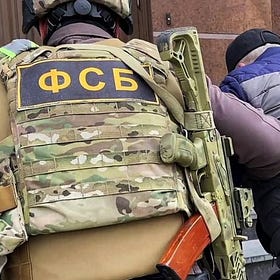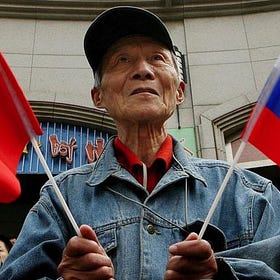“I assume they tortured him and overdid it.” Espionage, China, and death behind bars in Russia’s Far East
The story of Sergei Yatsenko — one among a growing number of treason cases opened in Russia in 2023.
By Sergey Goryashko and Ksenia Churmanova.
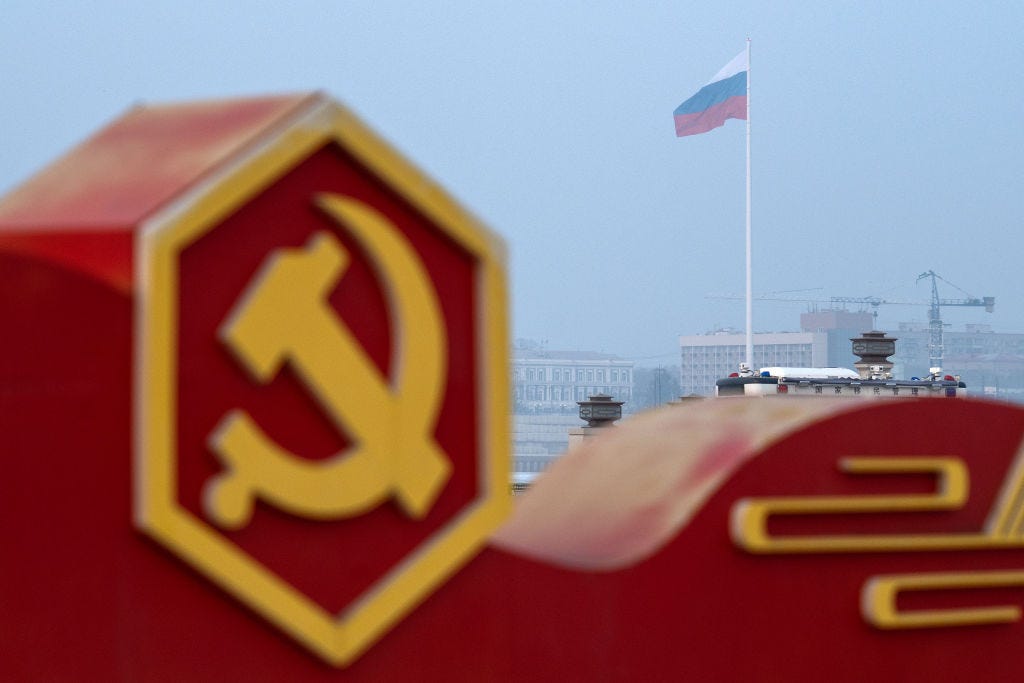
Sergei Yatsenko was a struggling entrepreneur in his mid-forties looking for a change in life. Last autumn, he signed a contract for military service, and joined a Marines unit based in Russia’s Far East. But after basic training, instead of the frontline in Ukraine, Yatsenko found himself in pre-trial detention, charged with spying for China.
We reported the espionage case earlier this year, and can now report Yatsenko’s death in custody. He took his own life by hanging, according to the prison administration.
But a relative we spoke to rejects this account completely. Sergei, they say, had nothing to do with spying and would never have killed himself.
What follows is Yatsenko’s story - one among a sharply growing number of treason cases opened in 2023.
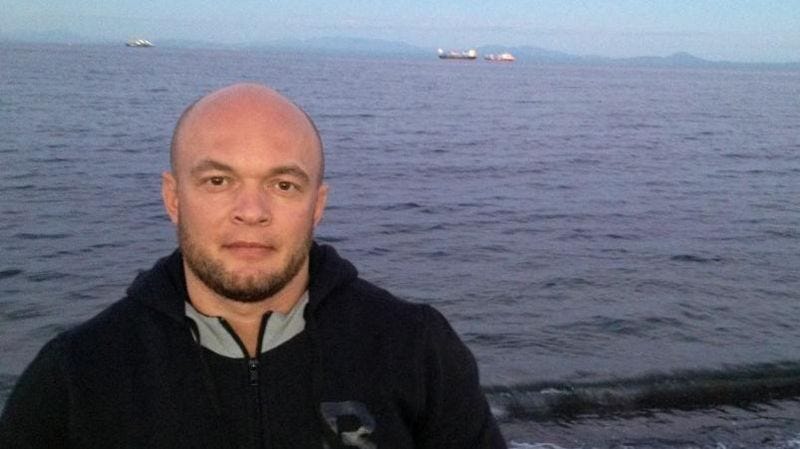
It was the evening of November 8th when a staff member of Blagoveshchensk Pre-Trial Detention Centre No.1 phoned the family of 46-year-old Sergei Yatsenko. By then, Yatsenko had been under arrest on treason charges for more than eight months. She informed them that he had committed suicide.
"The woman said, 'Don't grieve too much: he did it to himself,'" recalls a relative, quoting the detention centre official. The relative asked to remain anonymous, for fear of their safety.
Yatsenko’s death was also confirmed by three of his acquaintances. The BBC has obtained a copy of the death certificate. He leaves behind a wife and three children from two marriages.
"He wouldn't have done this, because of his children and his mother. It wouldn’t be like him to take his own life," the relative says.
“He told me that veins should be cut lengthwise”
Yatsenko had been held since February in an isolation facility in Vladivostok. Two months ago, he was transferred to Blagoveshchensk, the administrative centre of the Amur region.
The Federal Security Service (FSB) launched the case on February 13th. Media outlets, citing the investigation, said that from January 28th to June 20th 2020 Yatsenko had provided Chinese intelligence with secret information about Russia's nuclear weaponry.
The news seemed timed to follow the Chinese leader’s departure from Russia — Xi Jinping had just been in Moscow for a meeting with President Putin.
Confirmation of Yatsenko's detention and the extension of his arrest is not available in the court records of either region. Information about defendants in treason cases, and about associated hearings, is rarely made public in Russia.
“The veins were not dressed, or stitched, but had been cut crossways, which is not how suicides are carried out. He had once told me that veins should be cut lengthwise, so that the blood escapes faster.”
Two days after Yatsenko’s detention, local businessman Ivan Lukin was arrested in Blagoveshchensk in connection with the same treason case. The Astra and Baza Telegram channels, known for publishing information directly from the FSB, named him as an intermediary between Yatsenko and Chinese intelligence. They said the charges against both men mentioned a joint trip to Heihe, the Chinese city on the opposite bank of the Amur river from Blagoveshchensk.
Lukin went with Yatsenko to Heihe in January 2020, they alleged, right after the start of the pandemic and the closure of the border with China. Lukin was purportedly working for someone named Yan Shihen, the media said, whom Russian law enforcement officials believed to be a member of the Chinese intelligence services.
According to the investigation, Lukin established contact with Yan Shihen in 2013. Shihen was a member of the local government of Heihe and officially worked with the authorities in Russia's Far East. He was responsible for the security and protection of rights of Russians visiting the city. In May, Shihen told the BBC that he remembers neither Lukin nor Yatsenko, but admitted to having "many Russian acquaintances."
The BBC has written to Lukin in prison but has received no reply.
Yatsenko's lawyer, Andrey Yudichev, hired by Yatsenko’s friends, never got to Blagoveshchensk—there wasn’t enough money to cover his travel expenses. Yudichev told the BBC that he continues to represent Yatsenko but declined to comment on the news of his client's death, citing attorney-client privilege. "Yes, I represent him. Unfortunately, I cannot provide comment. Please contact the investigative body and clarify with them."
Yatsenko’s relative recalls the conversation with the prison staff member on the day when they found out that Sergei was dead.
— Can I clarify the cause of death?
— Hanging.
— Are you saying he hanged himself in prison?
— Yes.
— How?
— With a rope.
— How did he get hold of a rope in prison?
— It could have been made out of his trousers, or from a t-shirt… I don’t know.
Later, talking to another prison warden, they were told that Sergei did not die in the prison medical wing, as the family was told earlier, but had hung himself in the solitary cell to which he had asked to be relocated.
The FSB investigator in charge of the case, Dmitry Zatsepin, told the family that Yatsenko had also attempted suicide in Blagoveshchensk prison by cutting his veins. He didn’t say when this took place. When the BBC contacted him, Zatsepin hung up the phone on hearing the question.
After receiving the body, Yatsenko’s relatives examined the corpse and discovered that his veins had been cut horizontally.
“The veins were not dressed, or stitched, but had been cut crossways, which is not how suicides are carried out. He had once told me that veins should be cut lengthwise, so that the blood escapes faster,” the relative said.
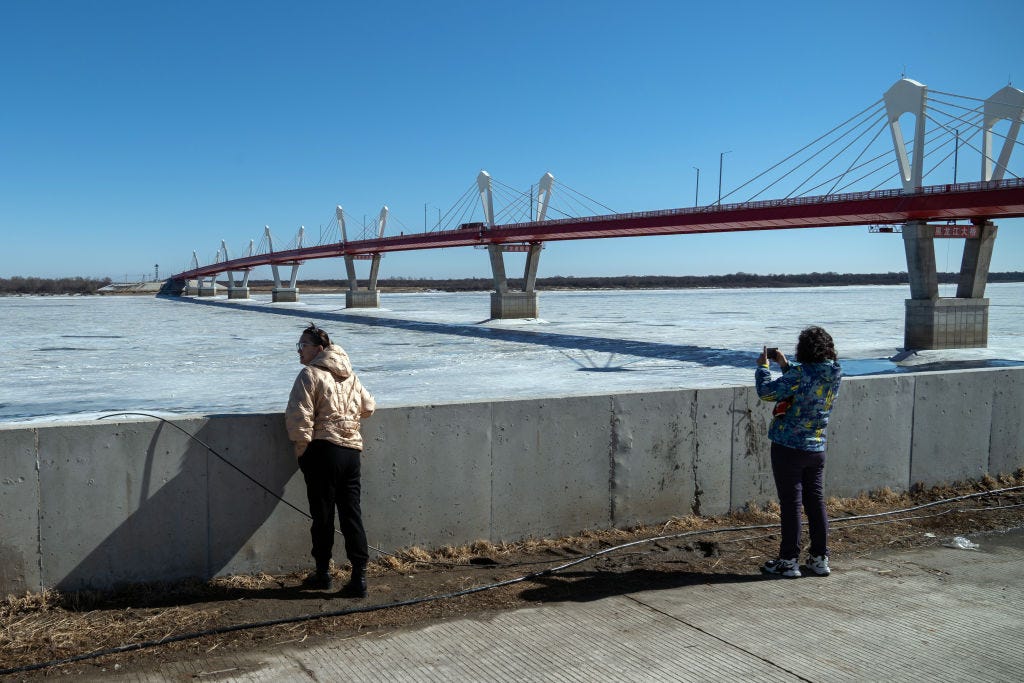
Two weeks before his death, on October 24th and 25th, Yatsenko called his mother from the investigator's phone. According to the relative, Sergei’s mother didn't see any cause to worry about his life then. She had also paid visits to her son in pre-trial detention.
Yatsenko left no suicide note—at least, his relatives weren't shown any. "There were no letters, nothing. Just a body arrived," said the relative who spoke with the BBC.
On November 15th, Sergei Yatsenko was buried in Vladivostok. Family and friends are still asking themselves how he could have obtained a knife and a rope in pre-trial detention.
"It's a mystery shrouded in darkness. I have no idea what happened. I was shocked. Everyone was shocked," said Maxim, a friend of Yatsenko, speaking to the BBC about his death. They lived in the same neighbourhood in Vladivostok in the 1990s.
Spy or unlucky entrepreneur?
Sergei Yatsenko was born in Vladivostok and had been involved in business there for most of his life. According to commercial records, he was a co-owner of at least five companies there, as well as heading another one. The firms operated in various fields, from fishing, construction, and trading vehicles, to the extraction of ores and sands of precious and rare metals.
"He would fly somewhere to Kamchatka, the Kuril Islands, dealing with fish, vehicles, selling, reselling. We repaired cars for him," replied an employee of an auto repair shop in Vladivostok when asked by the BBC about Yatsenko's activities. He asked to remain anonymous.
Like many residents of the Russian Far East, Yatsenko travelled to China on business during those years. The security services had already opened cases against local entrepreneurs and military personnel on charges of smuggling and espionage for China. The father of one of Yatsenko's business partners was sentenced to 10 years on such charges in 2004.
In May 2011, Yatsenko himself and another business partner, Mikhail Shipitko, were convicted in Vladivostok of smuggling. "They were ferrying Chinese textiles to Moscow. They just didn't pay their taxes, and they got caught," the relative explained.
Speaking to the BBC, Mikhail Shipitko described Sergei Yatsenko as “a respectable and decent person, a good comrade, always ready to help. We were in business together, everything worked out fine, and we never had any disagreements. We used to handle cargo customs clearance — basically, we acted as customs brokers."
He said their case arose because they failed to correctly declare goods in transit. A customs inspection led both of them to face charges. The security services detained the partners, they confessed, and they received suspended sentences.
The companies in which Yatsenko was listed as a co-owner or director have already been liquidated, the last one in 2019. During the COVID-19 pandemic, according to the relative, Yatsenko began working on a fishing vessel in the far eastern region of Kamchatka, before moving to Moscow in 2021.
Shipitko told the BBC that he and Yatsenko fell out of touch a few years ago: "These things happen."
Early in 2022, according to the FSB account reported by the media, Yatsenko allegedly began passing secret information to Chinese intelligence. In the summer, he relocated from the capital to Novosibirsk and then to the Amur region, according to Yatsenko's relative and Shipitko. Yatsenko supposedly worked shifts there as a quarry foreman. He had no prior links to the region, and had never lived where he was ultimately to die.
“He used to run, do his exercises, fired his rifle”
Sergei Yatsenko joined the army in the autumn of 2022 just as President Putin announced the mobilisation for the war with Ukraine in Russia. He wasn't conscripted at the time, but in November he signed a contract with the Ministry of Defence, according to his relative. After this, Sergei entered into a civil marriage with his partner, the mother of his younger daughter. He also has a daughter and a son from his previous marriage. His former wife apparently helped him get ready for military service.
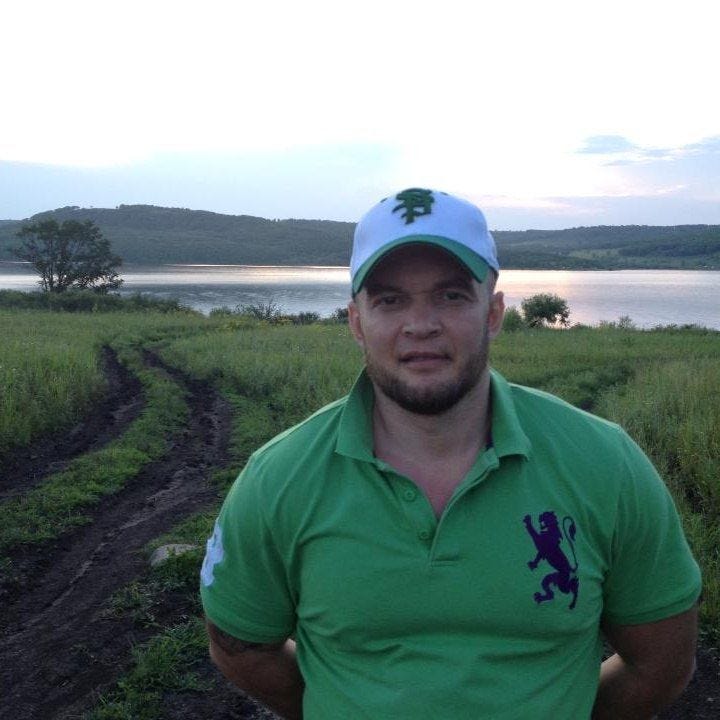
Along with Yatsenko’s widow and adult son, she declined to comment. His brother did not respond to messages on the VKontakte social media platform.
According to the relative who spoke to the BBC, Yatsenko decided to go to war for financial reasons – he needed a job and he had no money. His family attempted to persuade him to seek other work: "He had been involved in sports his entire life, since he was 18. I told him to become a coach, as he had good experience and knowledge."
But Yatsenko enlisted in the Marines. He had no combat experience: he had only served his mandatory term of national service back in his youth. In 2020, Yatsenko posted congratulations on Marines Day to his friend Maxim via Instagram. Maxim said that before signing the contract, Sergei had asked about serving in the Marines: "He called me, and I said: 'Go for it, sign the contract'."
Yatsenko underwent pre-deployment training in the military unit on Snegovaya Street in Vladivostok, where the 155th Marine Brigade is stationed. He effectively agreed to serve until the end of the war in Ukraine—Putin’s decree means contract soldiers cannot resign earlier.
Yatsenko’s relative says that he enjoyed his time in the army: “He used to run, did his exercises, and fired his rifle.” During leave, he would come to the city to see his daughter.
But even after three months of training he still hadn’t been sent to the front. The relative thinks that Yatsenko was already being investigated by the FSB back then.
In the end, the case against Yatsenko was opened on February 13th. He was detained directly at the military base.
“I assume they tortured him and overdid it”
On February 15th, FSB officers carried out searches at the addresses of Sergei's parents, wife, and ex-wife. "The documents for the seizure of electronic equipment mentioned the years 2020 and 2022. During that time, allegedly, he was transferring data either to the 'Chinese side' or 'Chinese intelligence,'" says Sergei's relative. "When I saw this, I said, 'Are you crazy? If he did that, at least he'd have some money!”
“He definitely had no intention of harming his country. During the searches, I stood up for Sergei straight away. I knew he would never do something like that. But the FSB told me, 'If you cause any problems now, [expletive], you'll be charged along with him under the same article.'"
According to media reports citing the investigation, Yatsenko travelled to China in 2020, and the alleged transfer of secret information occurred two years later, ‘from January 28th to June 20th, 2022.’ During most, if not all, of this time, Yatsenko was living in Moscow, according to his relative.
Whether Yatsenko actually travelled to China in January 2020, before going to sea on a fishing vessel in Kamchatka, the relative cannot say. Due to the pandemic, China had already closed the border between Blagoveshchensk and Heihe from the New Year. The bridge between the cities had not yet been completed at that time. However, according to media reports, it was allegedly to Heihe that Yatsenko was then taken by the businessman from Blagoveshchensk, Ivan Lukin, who himself had purportedly been recruited by 'Chinese intelligence officer' Yan Shihen back in 2013.
According to his relative, Yatsenko did not deny meeting Yan Shihen, the Chinese individual the FSB were interested in. "He admitted it and said, 'Yes, that took place,'” they state.

"He knew nothing, he didn't have access to any organisations. Perhaps there was some contact somewhere with someone, some Chinese person under the guise of something, and he didn't even suspect it—he had a conversation, and it was forgotten. And then they started dragging him into this," the relative speculates. "But if a person has voluntarily joined up for the Special Military Operation [the official name of Russia’s invasion of Ukraine], how can there be any talk of treason?"
In the relative’s opinion, the authorities tried to pin something on Yatsenko that he didn't do. "Everyone who knew him laughed. Sergei was basically a nobody, and had absolutely no connection to any military matters."
The relative is convinced that the authorities were trying to extract a confession from their detainee: "I think they were torturing him to make him sign papers, but they overdid it. They tried to make him confess [to being a Chinese spy]. But he's very stubborn: even if you threatened to kill him, he wouldn't agree."
Sergei is the eldest of the three Yatsenko brothers. The middle brother died in 2012. "Sergei would never do anything to harm himself, especially because of his mother," asserts the relative.
"Now you can pin anything on him. The man’s gone, and you can do whatever you want.”
Criminal cases on treason charges have sharply increased after Russia's full-scale invasion of Ukraine. It is known that the FSB in the Russian Far East alone has launched around a dozen. Overall, according to ‘Kholod’ magazine, there were more than 80 cases across Russia in the first half of 2023.
15 individuals accused on charges of treason received sentences ranging from three to 15 years in prison, noted the human rights project ‘Pervy Otdel.’ According to the organisation’s lawyer, Yevgeny Smirnov, there could be as many as 250 individuals accused of treason in detention facilities across the country by the end of this year.
Information about the location of such defendants, the verdicts brought against them, and especially information about deaths in prison, is generally kept secret from the public. Individuals imprisoned under the ‘espionage article’ simply disappear—for a long time. Or permanently.
The BBC has sent inquiries about the arrest and circumstances of death of Sergei Yatsenko to the FSB, the Federal Penitentiary Service, the Investigative Committee of Russia, and the press services of the courts in the Primorsky Krai region.
Read the full story in Russian here.
English version edited by Chris Booth.
'Chinese whispers'. How the FSB hunts 'spies' in Russia's Far East
By Sergei Goryashko and Ksenia Churmanova. Since the beginning of 2023, at least six people in the Russian Far East have been detained by the FSB on suspicion of treason.…
Friendship with limits: how Russian-Chinese relations cooled in the course of Ukraine war
Olga Ivshina, BBC News Russian and Howard Zhang, BBC News Chinese. Nearly a year after Russia started its war against Ukraine, there are signs that China might be reconsidering the “friendship with no limits” concept, which was famously unveiled days before the full-scale invasion. Shocked by Putin’s failures in Ukraine …




